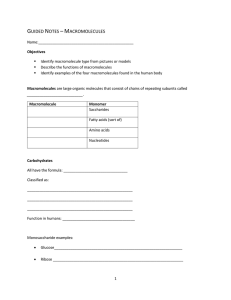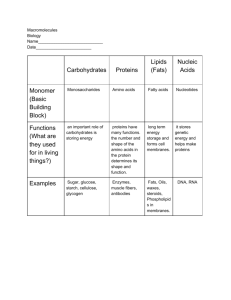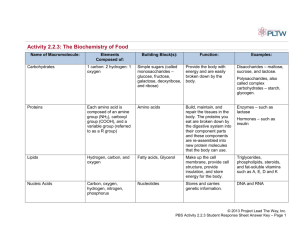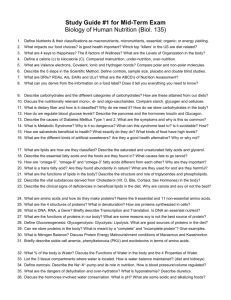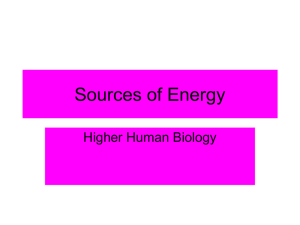Macromolecules: Biochemistry Lesson Plan for High School
advertisement
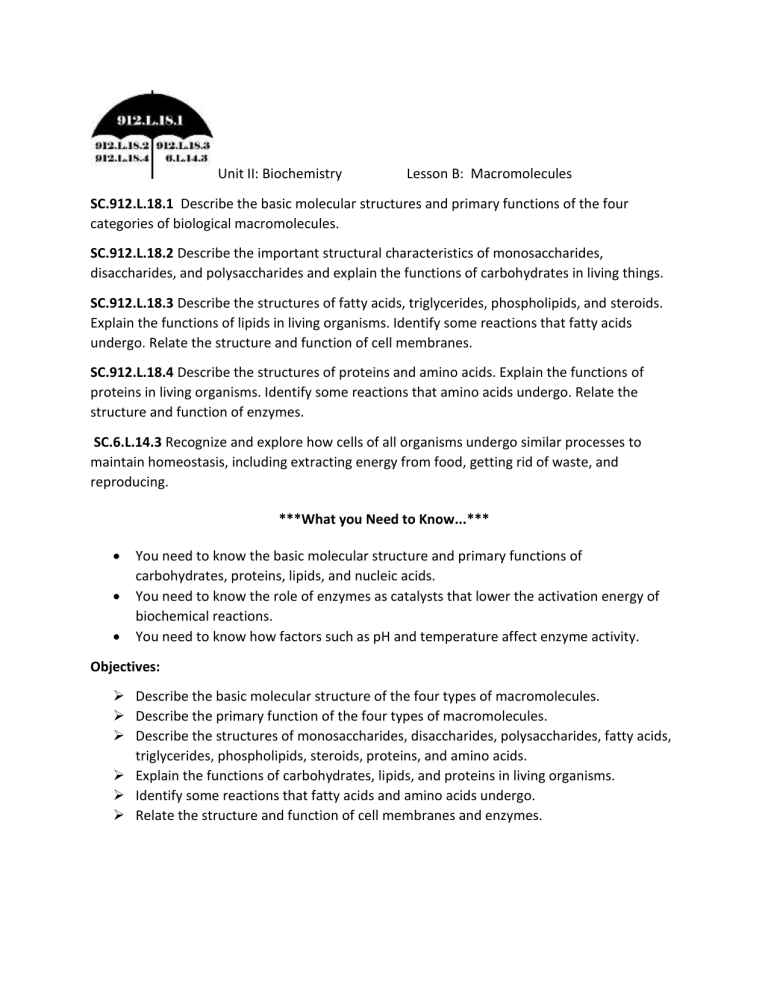
Unit II: Biochemistry Lesson B: Macromolecules SC.912.L.18.1 Describe the basic molecular structures and primary functions of the four categories of biological macromolecules. SC.912.L.18.2 Describe the important structural characteristics of monosaccharides, disaccharides, and polysaccharides and explain the functions of carbohydrates in living things. SC.912.L.18.3 Describe the structures of fatty acids, triglycerides, phospholipids, and steroids. Explain the functions of lipids in living organisms. Identify some reactions that fatty acids undergo. Relate the structure and function of cell membranes. SC.912.L.18.4 Describe the structures of proteins and amino acids. Explain the functions of proteins in living organisms. Identify some reactions that amino acids undergo. Relate the structure and function of enzymes. SC.6.L.14.3 Recognize and explore how cells of all organisms undergo similar processes to maintain homeostasis, including extracting energy from food, getting rid of waste, and reproducing. ***What you Need to Know...*** You need to know the basic molecular structure and primary functions of carbohydrates, proteins, lipids, and nucleic acids. You need to know the role of enzymes as catalysts that lower the activation energy of biochemical reactions. You need to know how factors such as pH and temperature affect enzyme activity. Objectives: Describe the basic molecular structure of the four types of macromolecules. Describe the primary function of the four types of macromolecules. Describe the structures of monosaccharides, disaccharides, polysaccharides, fatty acids, triglycerides, phospholipids, steroids, proteins, and amino acids. Explain the functions of carbohydrates, lipids, and proteins in living organisms. Identify some reactions that fatty acids and amino acids undergo. Relate the structure and function of cell membranes and enzymes. Essential Question: How do the different types of macromolecules function to meet our needs? Higher Order Questions (HOQ): Why would lipids have more energy than carbohydrates? Vocabulary: Polymer Carbohydrate Nucleic acid Protein Lipid Monomer Saccharides Nucleotides Amino acid Fatty acid Organic Inorganic Covalent bond Glycerol Triglyceride Mono- di- poly Steroids Phospholipids
